GREAT MUSIC FIGURES — COMPOSERS
~.jpg)
Agshin Aligulu oglu Alizade (1937-2014) — Azerbaijani composer, professor.
In 1962, he graduated from the Baku Conservatory, Jovdat Hajiyev's composition class.
The sonata, which he wrote in his student years, was awarded a first-degree diploma at the I All-Union Competition for Young Composers, and then his first symphony was awarded the first-degree diploma at the Transcaucasian Spring Festival. Written for 16-string instruments, his "Express" is an interesting experiment for aleatoric and sonorous techniques. "Bayatilar" is a unique experiment in Azerbaijani music, more monodic.
The common features of Agshin Alizadeh's work are virtuoso ethnography, deep philosophical generalization, emotional breadth, constructiveness, oriental colorful decor, and serious form proportion. His main works are "Babak" ballet, "Journey to the Caucasus" ballet, "Waltz of Hope" ballet, 5 symphonies, "Bayatilar" for choir, "Tantana", "Azeris" cantatas, "Mother Land", "Ancient Lullaby", "Pastoral" for chamber orchestra, "Like an Ashug", "Jangi", "Village Suite", "Children's Suite", sonata for piano, "Epic", "Ancient games", "Portrait", choreographic symphony, etc.
He has written more than 50 songs for films, cartoons, and performances.

Arif Jahangir oglu Malikov (1933) — Azerbaijani composer and artist, professor.
In 1960, he graduated from the Azerbaijan State Conservatory named after Uzeyir Hajibayov in the composition class of Gara Garayev. From that year he began to teach there and now works there as a professor and head of the department of composition.
The work of the composer Arif Malikov is distinguished by bright talent and originality. In his works, he combines the traditions of national music with the achievements of 20th-century music and acts as an artist with a progressive mindset.
His work is characterized by high ideas, rich content, deeply emotional and psychological expression of images. The first great work based on the libretto of the famous Turkish poet Nazim Hikmet — the ballet "Legend of Love" brought world fame to Arif Malikov. One of the composer's next creative successes was the ballet "Poem of Two Hearts" based on the book "Book of Two Hearts" by Uzbek writer Sh. Rashidov.
Arif Malikov's works are performed in many countries around the world — Russia, USA, Great Britain, France, Japan, Turkey, Brazil, Austria, Norway, Finland, Italy, Egypt, Thailand, Yugoslavia, Bulgaria, Romania, Hungary, Czech Republic, Slovakia, Poland, Germany performed in Uzbekistan, Kazakhstan, Moldova, Ukraine, and Georgia.
In 2016, Arif Malikov's "Complete Collection of Notes" consisting of 28 volumes was published.
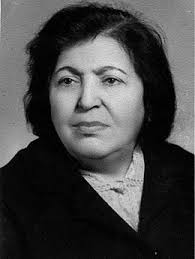
Agabaji Ismayil gizi Rzayeva (1912-1975) — the first female composer of Azerbaijan.
Ms. Agabadji received her higher musical education from the tar player and composer Said Rustamov, and in mugham from Mirza Mansur Mansurov.
She studied composition at Uzeyir Hajibeyov's class at the Azerbaijan State Conservatory and was one of his favorite students. U.Hajibeyov, A.Badalbeyli, and J.Hajiyev teach her music-theoretical subjects. A year later, she was admitted to the first orchestra of folk instruments created by Uzeyir Hajibeyov, and in 1938 took part in the Decade of Azerbaijani Art in Moscow. She is the first female composer to receive professional music education both in Azerbaijan and in the whole East. The first work she composed was "Young Patriots March".Song and romance become the leading field of A.Rzayeva's creativity. Glorifying the labor heroism of our heroic oil workers she wrote "Neftchi Gurban", bringing tears of joy to the eyes of parents "Bride is coming to our house", "Don't Sing Beauty", "Shepherd Black", "Doll" which opened a sweet and miraculous world before the eyes of little girls "Swallow", "My White Dove", "Masters of Tomorrow", "Little Captain", "I am Carnation" and other works have a worthy place in our national culture. A.Rzayeva also tried to expand the genre range of her work. In this sense, it is possible to mention her musical stage works ("Love of the Sun", "Do not argue"), variations, two sonatas, plays written for oboe, tar, and kamancha, suite "Festivity" for folk instruments. The inclusion of a clarinet in the orchestra of folk instruments is also connected with the name Agabaji Rzayeva.
She was a deputy of the Supreme Soviet of the Azerbaijan SSR for several convocations, was twice awarded the Order of the Red Banner of Labor, the Order of the Badge of Honor, and various medals. In 1960, she was awarded the honorary title of Honored Artist.
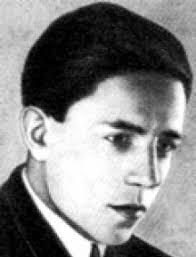
Asaf Zeynalabdin oglu Zeynalli (1909-1932) — Azerbaijani composer.
In 1923-1926 he graduated from the Baku Music College, in 1931 from the composition department of the Azerbaijan State Conservatory, in the class of Uzeyir Hajibeyov. In 1929-1931 he worked as head of the music department and chairman of the Union of Proletarian Musicians of Azerbaijan at the Turkish (Azerbaijani) Workers' Theater. Tofig Guliyev and Gara Garayev were his students for some time. The first romances in the history of Azerbaijani music are associated with the name Asaf Zeynalli.
Despite living for 23 years, he has left an undeniable mark on the art of national music. He is the founder of national romance, piano, and symphonic music. His romances "My Country", "Border Guard", "Chadra", "Question", "Seyran" are the pearls of our national vocal music. He is the author of the series "Children's Suite" for piano, the play "Chahargah", "Mughamsayagy" for violin and piano, 2 fugues, "Fragments" for symphony orchestra, music for theater performances, folk songs. He did a great job in collecting, transcribing, and processing Azerbaijani folk music. He compiled a textbook called "Primary Music Literacy".
He also composed music for Jafar Jabbarli's "Sevil", "Return", H. Nazirli and S. Rustam's "Flame", A. Hamid's "Indian Girl", V. Kirshon's "City of Winds" performed at the Turkish (Azerbaijani) Workers' Theater, with the "Children's Suite" for the first time in the history of Azerbaijani music laid the foundation of the repertoire of children's music. Asaf Zeynalli recorded several Azerbaijani folk songs. The most famous work is considered the novel "My Country", written in the words of Jafar Jabbarli.
He records about 70 Azerbaijani folk songs. He goes to Karabakh to collect samples of Azerbaijani folk music, and there he fell ill. The bedridden composer returns to Baku for treatment. While in the hospital, he wrote his last symphony on the wall of his room and asked his brother to copy his work from the wall to paper. Unfortunately, no one fulfills his last will...
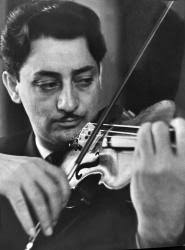
Azer Huseyn oglu Rzayev (1930-2015) — Azerbaijani composer, professor.
He received his primary education at the 11-year music school of the Azerbaijan State Conservatory named after U. Hajibeyli in the class of Professor S. Bretanitsky in violin and at the same time in the class of children's creativity Boris Zeidman. Then he continued his education at the Azerbaijan State Conservatory, where he graduated with 2 specialties in 1953: the class of Professor B.Zeidman in composition and the class of Professor A.Amito in violin. In 1953, he began working as a violin teacher at a 10-year music school and as a concertmaster-accompanist at the conservatory.
A.Rzayev became known as a composer for the first time with Concerto No. 1 for symphony orchestra with violin. The composer was awarded the title of laureate of the International Competition of Composers in Warsaw in 1955 for this work. He has been a member of the Union of Composers of Azerbaijan since 1954, a member of the Board of the Union of Composers of Azerbaijan since 1957, as a chamber ensemble teacher, headteacher, and professor at the Azerbaijan State Conservatory, he was a sound director in the Radio and Television Committee, artistic director of the State Philharmonic named after M. Magomayev, director of the Azerbaijan State Academic Opera and Ballet Theater.
Instrumental music genres play a key role in the composer's work. He has performed 3 concerts for symphony orchestra with violin, 6 poems, including "Lust for Life", "Nasimi", "In Memory of My Father", "Baku-90" symphony, "Fadai-Vatan" for orchestra with violin, "Poem-concert" for cello and symphony orchestra, "Thought" and "Gaytagi" for tar and symphony orchestra, Concerto for piano and symphony orchestra, also he is the author of an operetta "Haji Karim's Journey to the Moon", a large number of chamber and instrumental works, music for performances.
Since 1963, he has been the author and host of a series of programs on television and radio: "Pages from the history of Azerbaijani music", "On the orchestra's musical instruments", "Portrait of our composers", "World of Music". In 1997, he created the "Children's Symphony Orchestra" at the Bulbul Secondary Music School.
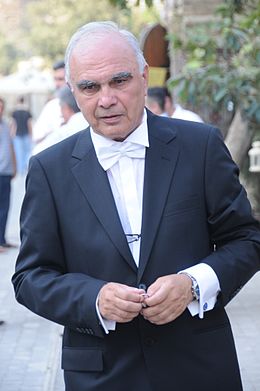
Javanshir Rahim oglu Guliyev (1950) — famous Azerbaijani composer.
In 1968 he entered the Tar Department of the Faculty of Folk Instruments of the Azerbaijan State Conservatory named after Uzeyir Hajibeyov. Two years later he entered the Conservatory's Faculty of Composition and in 1975 graduated from the class of prominent composer, Professor Jovdat Hajiyev.
While still a student, J.Guliyev began his experiments in composition. In the "First Quartet", which he wrote in his sophomore year, he succeeded in revealing a new style of music by synthesizing national music, which is the main creative principle of the future, with modern compositional techniques. The work was met with great interest by the audience, liked and for a long time was the cause of creative debates in terms of "nationality and modernity." It was performed at several inter-conservatories in the then Union of Composers of the USSR and aroused great interest. Later, several other works composed by J.Guliyev in this style were performed in various European countries and America and received great sympathy.
Javanshir Guliyev is the author of the first military anthem of modern Azerbaijan. For the first time, J.Guliyev included saz and zurna in symphonic and symphonic-jazz orchestras and used them as the main instruments. He started working as a sound director at the Azerbaijan State Committee for Television and Radio Broadcasting in 1973 when he was a student and worked in that position for 17 years.
From 1990-1993 he was the artistic director of the Azerbaijan State Concert Union. In 1980-1998 he worked as a teacher at the Azerbaijan State Conservatory named after Uzeyir Hajibeyov — Baku Music Academy, in 1994-2003 at the Azerbaijan State University of Culture and Arts. In parallel, from September 1, 1992, to 2005 he worked as the director of the music department at the Academic National Drama Theater. He has been an associate professor at the Azerbaijan National Conservatory since 2003, a professor since 2005, and a professor at the Faculty of Performing Arts of the Middle East University of the Turkish Republic of Northern Cyprus since 2005.
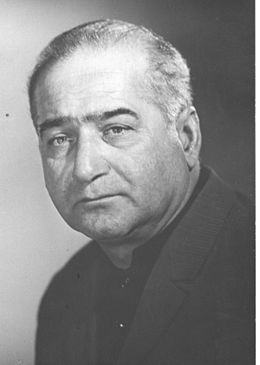
Jahangir Jahangirov (1921-1992) — composer, teacher, choirmaster.
He studied at the Baku Music School named after A.Zeynalli, in 1951 at the Azerbaijan State Conservatory in the composition class of B.Zeydman. Jahangir Jahangirov's work in the field of the choir is considered the pinnacle of Azerbaijani choral art, founded by Uzeyir Hajibeyov. Starting from 1949, the composer led the choir created under the Azerbaijan Radio and worked with this ensemble for more than 15 years. The majority of songs, composed by him for the first time were played by the chorus, which he led. After that, he was the artistic director of the Song and Dance Ensemble at Azerbaijan State Philharmonic Hall. In 1959 he was an Honored Art Worker, in 1963 a People's Artist, and in 1950 a laureate of the USSR State Prize.
Jahangir Jahangirov's work is distinguished by its diversity. The composer has choral and instrumental pieces of music, operas, and beautiful songs. Examples include the composer's interesting work in the field of choral music, the poem "Across the River Aras", the 12-part composition "A Song About Friendship", the choir numbers of the operas "Azad" and "Khananda's Fortune", the cantatas "Fuzuli", "Nasimi", "Ashug Ali", the oratorio "Sabir", oda he wrote with Suleyman Alasgarov and dozens of choir miniatures can be shown. Of these works, the cantata "Fuzuli" brought great fame to Jahangir Jahangirov. In the cantata, he was able to reveal the magnificent image of the great poet with the uniquely impressive and heartwarming musical language of his inner world. The text of the cantata is based on Fuzuli's three ghazals. Each ghazal, in turn, combines a part.
His songs "Mother", "Moonlight Night", "Baku", "Morning Star and Me", "Hey, Girl", "Grey-eyed" and other songs are memorized. Jahangir Jahangirov also appealed to the works of classics, wrote soulful songs and romances.
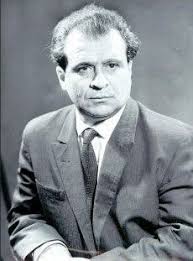
Ahmad-Jovdat Ismayil oglu Hajiyev (1917-2002) — famous Azerbaijani composer, rector, and professor of Baku Music Academy
After graduating from high school, he studied at the Azerbaijan State Conservatory in 1935-1938, and at the Moscow Conservatory in 1938–194 and he continued his education, which was incomplete during the war, and in 1947 graduated from the class of composer Dmitry Shostakovich.
Jovdat Hajiyev, who played a great role in the development of the Azerbaijani school of composition, rendered incomparable services in the training of professional musicians in Azerbaijan. He was a wonderful teacher who brought up several generations of Azerbaijani composers. Jovdat Hajiyev's services in the development and promotion of Azerbaijani music culture were highly appreciated. He was twice awarded the USSR State Prize, was awarded many orders and medals, including the highest award of the Republic of Azerbaijan - the Order of Glory.
J.Hajiyev, one of the founders of the music symphony in Azerbaijan, touched upon the most important problems of his time in his symphonies and symphonic poem "For Peace" and reflected them in a lyrical dramatic way. His opera "Motherland" was composed together with Gara Garayev, and his chamber-instrumental and piano works also play an important his work. He composed a one-part "Symphony" which was his first major work during his student years, and two symphonic poems, "Azerbaijan Suite", string quartet, and other works. In 1945, he was awarded the USSR State Prize for his opera "Motherland" written together with Gara Garayev.
Jovdat Hajiyev is the author of eight symphonies, as well as oratorios, ballads, sonatas, scherzos, and quartets, as well as several valuable works for the choir.
The Eighth Symphony of Jovdat Hajiyev "Time Has Chosen Him" is dedicated to the President of Azerbaijan Heydar Aliyev.
Eldar Bahram oglu Mansurov (1952) — Azerbaijani composer.
In 1968-1972 he studied in the piano class of the secondary music school named after Asaf Zeynalli, in 1974-1979 at the composition faculty of the Azerbaijan State Conservatory named after Uzeyir Hajibeyov in the class of professor Jovdat Hajiyev. He is the author of the rock opera "Seven Beauties", rock ballets "Cleopatra" and "Olympus", 5 symphonies, symphonic mugham "Mahur-Hindi", a concert for violin and symphony orchestra, many symphonic, chamber, and choral works. He has composed music for some films and performances and is the author of more than 3,000 songs and instrumental music. He delivered lectures on the history of mughams at the International Symposiums held in Samarkand in 1983 and 1987.
He has been a member of the USSR since 1981, the Union of Composers of Azerbaijan, and the Union of Cinematographers of Azerbaijan since 1999.
For his contribution to the development of Azerbaijani culture, he was awarded the honorary title of "Honored Art Worker" in 2005 and "People's Artist" in 2012.
Composer Eldar Mansurov's song "Bayatilar" was first performed in 1989. "Bayatilar" immediately gained popularity and was widely distributed in the former Soviet Union in 1990 with a large circulation by the company "Melody". Bayatilar, written to the words of the poet Vahid Aziz, is still one of the favorite songs. Since then, this long-lived song has traveled the world. Bayatilar's music is used by various performers in Turkmenistan, Russia, Turkey, Greece, Germany, Italy, Spain, France, Romania, Bosnia and Herzegovina, Croatia, USA, England, Sweden, Canada, Israel, Arab countries, and even as far away as Brazil.
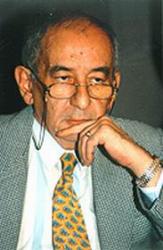
Emin Sabit oglu Mahmudov (Emin Sabitoglu) (1937-2000) — Azerbaijani composer.
After graduation from musical school in Baku, he entered Gara Garayev's class at Baku Conservatoire, in 1954. Two years later he was transferred to Moscow State Conservatory named after Tchaikovsky (Yuri Shaporin's class).
In 1961, he began to work as music editor in the film studio "Azerbaijanfilm". In consecutive years he worked as art director of the State Philharmonic Hall and also taught at State Conservatory((now Baku Music Academy) named after Uzeyir Hajibeyov. He wrote a symphony, three symphonic poems, three cantatas, a string quartet, a poem for violin and piano. However, several music genres have been a major part of his works.
He composed more than 600 songs, 9 musical comedies, and pieces of music for nearly 40 films. The songs "Valleys", "Good morning, Baku", "Far Green Island", "Mountains", "Mercy is a Good Thing" are some of his many works. He has many compositions written for plays that even he does not know the exact number. Along with theatres in Baku, he composed music for theatres in Sumgayit, Ganja, Lankaran, Mingachevir, and Nakchivan.
President of the Republic of Azerbaijan Ilham Aliyev has signed an order to celebrate the 80th anniversary of Emin Sabitoglu. To ensure the implementation of the Order of the President of the Republic of Azerbaijan No. 3142 dated August 5, 2017 "On the celebration of the 80th anniversary of Emin Sabitoglu" on December 1, 2017, the Azerbaijan State Academic Philharmonic Hall hosted a jubilee evening dedicated to the 80th anniversary of Emin Sabitoglu, one of the talented representatives of the musical art, a prominent composer, People's Artist, laureate of the State Prize, Order of Glory.

Afrasiyab Badalbey oglu Badalbeyli (1907-1976) — Azerbaijani classical composer, conductor, libretto player.
Afrasiyab Badalbeyli is the author of the first ballet in Azerbaijan. He is the author of the first Azerbaijani ballet, entitled Giz Galasi (The Maiden Tower), which he composed at the age of 33. In the following years, he wrote the operas "Nizami" and "Soyudlar aghlamaz" ("Willows Don't Cry") and reflected his name in golden letters in our cultural history. He composed background music for theatrical plays. He widely promoted our national music on Azerbaijani radio and television. Desiring to acquire perfect knowledge, Afrasiyab Badalbeyli entered the Azerbaijan State Turkish Music College in 1924 and at the same time the Department of Linguistics of the Oriental Faculty of the Azerbaijan State University. He composed music for Jafar Jabbarly's staged play "Od Galini"( "Bride of Fire") which was highly appreciated by art lovers. For a long time, he worked as an assistant conductor in the Moscow and Leningrad Opera and Ballet Theaters. From 1938 to the end of his life he worked as a conductor at the Azerbaijan State Opera and Ballet Theater. At the Music College, Afrasiyab Badalbeyli is studying violin in the class of teacher S.L. Bretanitsky. The talented young man quickly achieves the ability to play fluently and on May 22, 1925, he performed as a concertmaster of the second violin in the orchestra accompanying Uzeyir Hajibeyov's operetta "Arshin mal alan" staged by the students of the technical school.
Along with the violin, Afrasiyab Badalbeyli, who also achieved an impeccable style of playing the tar, joined the orchestra in 1926 as accompanist of the second group of tar players during the folk instrument orchestra's tour in Moscow and Minsk.
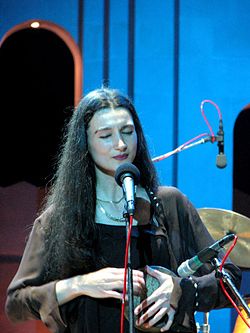
Aziza Vagif gizi Mustafazade (1969) — pianist, composer, and jazz performer.
At the age of 17, Aziza's mugham-influenced style helped her win in the Thelonious Monk piano competition in Washington. It was around this time that she moved to Germany with her mother. Aziza released her debut album, Aziza Mustafa Zadeh, in 1991. Her second album, Always, won her the Phono Academy Prize, a prestigious German music award, and the Echo Prize from Sony. She has since performed in many countries with many jazz and traditional luminaries and released several more albums, the most recent being Contrasts II, released in 2007.
On May 27, 2018, she was awarded the honorary title of People's Artist of Azerbaijan.
Aziza Mustafazade currently lives in Germany.
Aziza visited Azerbaijan in June 2007 for the Baku Jazz Festival, starring in her own concert at the Azerbaijan State Academic Opera and Ballet Theater. At the end of the festival, she performed in the open air at the concert at the Green Theater. At that concert, she performed a very spectacular performance of "Shamans".
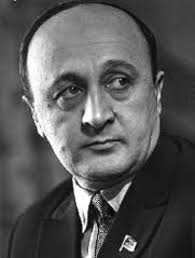
Fikrat Amirov (1922-1984) — Azerbaijani composer.
Fikrat Amirov is one of the leading figures of XX-century Azerbaijani music. No matter how wide the genre of F. Amirov's music, symphonic and musical stage genres play a leading role in his work. He created a new genre called symphonic mugham, his most famous pieces include works such as "Shur", Kurd Ovshari ", "Gulustan Bayati-Shiraz". F. Amirov's symphony "Nizami", glorifying the native land "Azerbaijan Capriccio", "Azerbaijan Suite", "Azerbaijani gravures" are valuable pages of the composer's heritage.
F. Amirov's opera "Sevil" based on Jabbarli's drama laid the foundation of lyrical-psychological opera for the first time in Azerbaijan (the play was first staged in 1953 at the Azerbaijan State Opera and Ballet Theater named after Akhundov). He also created interesting works in the genre of musical comedy, such as "Urakachanlar", "Gozun aydin". F.Amirov's beautiful ballets "One Thousand and One Nights" and "Nasimi" are the works that won the sympathy of the audience.
The first examples of the Azerbaijani concert genre were created by F. Amirov. Several of his concerts, especially "Concert on Arabic themes" written with E.Nazirova for piano and orchestra, are among the most performed works by Azerbaijani pianists.
His "12 miniatures for piano", various plays, "Star", "Azerbaijani lands", "My Flower", "I will smile if you smile", and other romances and songs are still frequently staged today. He also composed interesting background music for dramas, "The Great Support", "I Was Not Beautiful" and other films.
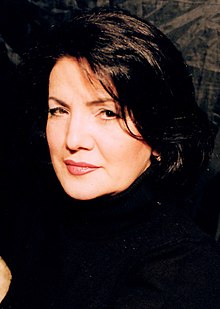
Firangiz Aliaga gizi Alizade (1947) — outstanding composer of Azerbaijan, UNESCO Peace artist.
She received her first music education at the Azerbaijan State Conservatory at the secondary music school for gifted children. Later she studied composition and piano at the Azerbaijan State Conservatory. From 1972 to 1974 she worked as an assistant to Gara Garayev, and in 1974 began teaching at the Azerbaijan State Conservatory (now the Baku Music Academy). F. Alizadeh defended his dissertation in 1994 and received the degree of candidate of art history, and in 1998 the title of professor.
Alizade's activities are multifaceted and broad. F. Alizade has established herself in the international arena as a composer, pianist, conductor, musician, and public figure. As a pianist, she played an important role in popularizing the modern works of A. Berg, P. Hindemith, and other foreign composers of the 20th century in our country was the first performer of the works of many Azerbaijani composers. In the presentation of her works, she acts both as a pianist and as a conductor.
F.Alizade is the author of several musical works in different genres: "Intizar"(waiting anxiously), "Your name means the Sea", "Legend about the white horse-drawn boy" operas, "Empty Cradle" and "Stadt-Granitza" ballets, "Habil sayagi", "Mugham sayagi", "Oasis" "," Dervish "," Absheron "- instrumental works for various compositions," Silk Road "concert, Concerto for Cello and Orchestra "Lamentation", "Dedication" for large symphony orchestra, etc. works.
From works written and performed in recent years by order of foreign music groups: "Wake up!" for cello (Paris, France, 2005), "Caspian" for quintet (New York, USA, 2006), "Fire" for flute, clarinet, violin and percussions (Seattle, USA, 2006); "Optical Identity" ballet (Singapore, 2007); "Al Kamandjaty" mystery (Rome, Italy, 2007), "Dastan" (Epic) for violin (Austburg, Germany, 2007), "Sea" for piano, cello and chamber orchestra (Bern, Switzerland, 2008), "Your name means the Sea" opera (Houston, USA, 2011), Khananda, "Mugflagamenco" for flamenco performer and ensemble (Amsterdam, Netherlands, 2011), "Impulse" for violin and piano (the USA, 2012), "Landscape" for piano (France, 2012), etc. can be noted.
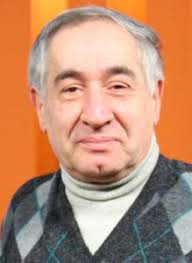
Mirfaig Miri oglu Sujaddinov (1947) — composer.
In 1965, Faig Sujaddinov entered the piano department of the Asaf Zeynalli Music College. In 1969, he began working in the orchestra at the invitation of the head of the Variety Orchestra of the Azerbaijan State Radio and Television Committee Tofig Ahmadov. In the 80s of the XX century, Faig Sujaddinov stopped working in the Variety Orchestra and continued his education at the Azerbaijan Pedagogical Institute of Languages.
In 1977 he was admitted to the composition faculty of the Azerbaijan State Conservatory, and graduated in 1981. In the 2000s, Faig Sujaddinov lived and worked in Turkey and Kirp. In the 2000s, Faig Sujaddinov lived and worked in Turkey and Kirp. His works include a concerto for piano and symphony orchestra (1990), a string quartet (1991), a concerto for piano and chamber orchestra (1992), a concerto for chamber orchestra (1993), "The Ataturk" oda for choir and symphony orchestra (1994), jazz compositions for ensembles of different compositions (1996).
He has been the People's Artist of the Republic of Azerbaijan since 2006, and in 2007 he was awarded the Order of Glory of Azerbaijan. On September 14, 2015, he was awarded a personal scholarship by the President of the Republic of Azerbaijan.
.jpg)
Khayyam Hadi oglu Mirzazade (1935) — composer.
In 1957 he graduated from the Azerbaijan State Conservatory named after Uzeyir Hajibeyov and has been working there since that year. From 1969-1983 he was the head of the composition department.
In 1970, he was awarded the Lenin Komsomol Prize of Azerbaijan, in 1975 and 1986, the State Prize of the Republic of Azerbaijan, in 1972, the Honored Art Worker of the Republic of Azerbaijan, and in 1987, the People's Artist of the Republic of Azerbaijan.
The prominent composer was awarded the Order of Glory in 2000.
Ballet "White and Black", symphonies I and II, symphonic poem "Sketches - 63", "Memory", "Moroccan Rhapsody", "Concert", "Concerto" for violin and orchestra, "4 miniatures" for orchestra with voice, also he is the author of a 2-string quartet, solo sonatas for separate instruments, 12 preludes for piano, "Ithaf" for soprano and piano, pop and jazz plays, and popular songs.
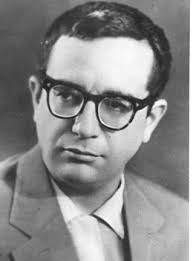
Gara Abulfaz oglu Garayev (1918-1982) — composer, teacher.
In 1926, Gara Garayev first entered the junior music school at the Azerbaijan State Conservatoire. Since 1930, he studied at the music school at the Azerbaijan State Conservatory in the piano class with Professor Georgy Sharoev, and since 1935 he studied at the Azerbaijan State Conservatory in the composition and fundamentals of Azerbaijani folk music. From 1938 to 1940 he studied composition at the Moscow State Conservatory. P.I. Tchaikovsky.
In 1937, Garayev joined the Union of Composers of Azerbaijan SSR. Returning from Moscow, in 1941 he became the artistic director of the Azerbaijan State Philharmonic Hall named after Muslim Magomayev. In 1944, he was deputy chairman of the Azerbaijan Composers' Union. In 1946, he began working as a teacher in the composition class at the Azerbaijan State Conservatory, and in the same year was elected a member of the organizing committee of the Union of Composers of the USSR. In 1953, the first performance of the ballet Seven Beauties was staged at the Leningrad State (Small) Opera House.
In 1963, during a tour of the Leningrad Small Opera House, he visited the Arab Republic of Egypt in connection with the performance of the ballet "Seven Beauties" in Cairo. In 1964, during the tour of the Bolshoi Theater of the USSR, he took part in the "Warsaw Autumn" contemporary music festival in connection with the performance of the ballet "Path of Thunder".
The first performance of the Third Symphony took place on April 21, 1965, in Moscow and on June 2 in Baku.
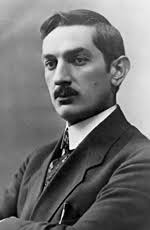
Muslim Mahammad oglu Magomayev (1885-1937) — Azerbaijani composer, conductor, pedagogue, folklorist, public figure.
He was one of the founders of the Azerbaijan Professional Musical Theater. The first large-scale musical work by Muslim Magomayev was the opera "Shah Ismail" written in 1916. In this work, the composer skillfully used the main elements of the opera, such as arias, duets, polyphonic choirs, as well as examples of national folklore. The opera, which premiered on March 7, 1919, has been performed about 400 times so far.
Muslim Magomayev's creative heritage includes opera "Nargiz", symphonic works such as " On the Fields of Azerbaijan", "Dance of the Liberated Azerbaijani Woman", "Dervish", "Waterfall", symphonic works such as radio anthem, "Jeyrani", "Turaci", "Chechen dance", "Spring", "Our Village", "Army of Fuel oil".
He composed music for Jalil Mammadguluzade's "Dead" and Jafar Jabbarli's "In 1905". Together with Uzeyir Hajibeyov, he compiled a collection of "Azerbaijani Turkish folk songs" and recorded more than 300 Azerbaijani folk songs and dances.
Muslim Magomayev, who was appointed the music director of Baku Radio, tried to perform the best works on air, ordering new songs and compositions for composers. On his initiative, a concert of the mugham "Night of Chahargah" was organized on the radio. At the same time, the Azerbaijani radio was opened by Muslim Magomayev's radio anthem.

Niyazi Zulfugar oglu Tagizade-Hajibeyov (1912-1984) — conductor and composer.
Niyazi's first great success in conducting was connected with the Days of Azerbaijani Art held in Moscow in 1938. Here he conducts Uzeyir Hajibeyov's "Koroglu" and Muslim Magomayev's "Nargiz" operas.
Niyazi worked at the Azerbaijan State Academic Opera and Ballet Theater, the Leningrad Opera and Ballet Theater, and the Azerbaijan State Philharmonic.
During his years at the Philharmonic, "The Humayun" folk instruments ensemble was established on his initiative. Having received an offer to work abroad, the conductor chose Turkey and achieved many successes at the Ankara Opera and Ballet Theater and the Istanbul Opera Theater. He went on tour to many countries around the world.
He also succeeded in composing. The symphonic mugham "Rast", the opera "Khosrov and Shirin" and the ballet "Chitra" have a special place in Niyazi's composition. He received the Jawaharlal Nehru International Award for his ballet Chitra, based on the famous Indian writer Rabindranath Tagore's philosophical drama Chitrangada.
Maestro Niyazi was awarded many state awards, the honorary title of People's Artist of the USSR, orders, and medals.
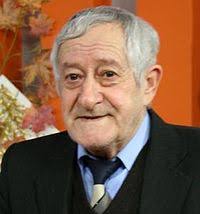
Ogtay Kazimi (1932-2010) — Azerbaijani composer, author of the first rock operetta in Azerbaijan.
While studying at the music school, he composed his first song "Lucky Children". O.Kazimi entered the composition faculty of the Conservatory named after Uzeyir Hajibeyov in 1957 and studied in the class of Jovdat Hajiyev. In 1966-1967 he worked as a teacher at the Sumgayit Music College, and then as the head of the teaching department. During his years in Sumgayit, O. Kazimi created the "Experiment" variety orchestra. Later, the composer worked as a music editor at the Philharmonic and taught at the Faculty of Folk Instruments at the Asaf Zeynalli Secondary Music School. O.Kazimi's songs have had a special place in the repertoire of "Dan ulduzu"(Morning Star) ensemble for many years. The songs of the famous composer were performed by Rashid Behbudov, Zeynab Khanlarova, Shovkat Alakbarova, Eldar Akhundov, Flora Karimova, Yalchin Rzazade, Ilhama Guliyeva, Ogtay Agayev, Mammadbagir Bagirzade, Zumrud Mammadova, and other famous singers. His concerts for folk instruments, vocal symphonic poem dedicated to the President of Azerbaijan Heydar Aliyev ("Awake Night of the Nation"), "Karabakh Rhapsody", solemn overtures, music composed for about 60 theatrical performances ("Crystal Palace" staged at the Academic Drama Theater), "Sword and Pen", "Fitna", "Hope", "Conquest of Edirne", etc.), "Sheikh Sanan" staged at the Russian Drama Theater, "Dogs" staged at the Chamber Theater, operettas staged at the Musical Performance Theater ("Golden Wedding", "Stories of Danabash Village", "Crazy World") operettas were memorized, songs of different styles made a charming contribution to the content of Azerbaijani art and were distinguished by their historical significance.
O.Kazimi's creativity was highly appreciated by the state. He was awarded the honorary titles of Honored Art Worker (1992), People's Artist of the Republic of Azerbaijan (2006), and the Presidential Scholarship. O.Kazimi is the author of the first rock opera in Azerbaijan.
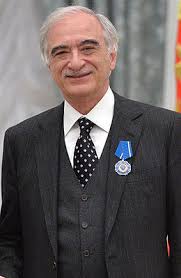
Polad Bulbuloglu (Polad Bulbul oglu Mammadov) (1945) — Azerbaijani composer and singer.
He took his father's nickname — Bulbul as a surname. In 1968, he graduated from Gara Garayev's class at the Azerbaijan State Conservatory. Polad is known as the author and performer of many popular songs. He is the author of music for films, plays, symphonies, symphonic poems, and other works.
Ambassador Extraordinary and Plenipotentiary of the Republic of Azerbaijan to Russia Polad Bulbuloglu was awarded the Prize of the Holy Prince Nevsky. The Ambassador was awarded by the Russian Interregional Public Fund.
Polad Bulbuloglu was awarded for his services in maintaining peace, understanding, and strengthening the bonds of friendship between the peoples of Russia and Azerbaijan.
Because of his honest presentation to the international community of Azerbaijan's struggle for territorial integrity, in his statements and interviews, despite the natural restrictions imposed on diplomacy, he insisted on the uncompromising position of our country, despite misunderstandings and contradictions in public opinion, although that society is not yet ready for any risky step during his visits to Nagorno-Karabakh — for the work done in the interests of Azerbaijan among Armenians, for his outstanding contribution to our great culture by staging the ballet "Love and Death" in Moscow, the capital of the Russian Federation, he was named "Person of the Year 2009" in Azerbaijan for his efforts to create an image of our country in terms of morality and patriotism. He was awarded the Order of Honor on February 3, 2015.
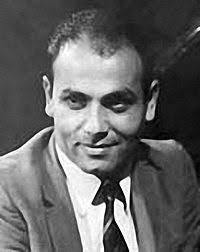
Rafig Farzi oglu Babayev (1936-1944) — Azerbaijani composer.
In 1943, Rafig entered Music School № 160, where he created his first jazz quartet. In 1950 he entered the piano class of the A.Zeynalli Music School, studied in the class of R.S.Levina. In addition to his studies at this school, he works as the musical director of the Folk Instruments Ensemble. He was also interested in jazz music and improved his improvisation skills. Later, Rafig Babayev devoted himself entirely to jazz music and, after graduating from the Baku Conservatory in 1959 as the musical director of the ensemble, went on long tours to different cities of the Soviet Union. Returning to Baku, Rafik Babayev met the famous singer Rashid Behbudov. When Rashid Behbudov founded the Song Theater in 1967, Rafig Babayev was invited to the position of musical director of the theater. R.Babaev and R.Behbudov are preparing a large theatrical concert program.
All these years, Rafig continues his creative activity in the field of jazz music, constantly doing working, and participating in jazz festivals. Rafig Babayev's ensemble won the 1967 Tallinn International Jazz Festival. His composition performed in "Bayati-Kurdish" style is especially noted. Gennady Stepanishshev (flute, saxophone), Rauf Sultanov (bass guitar), Alasgar Abbasov (guitar), Sayavush Karimi (org, keyboard instruments), Jamil Amirov (keyboard instruments), Tofig Jabbarov (percussion instruments), Firuz Ismayilov (synthesizer), Ramin Sultanov (percussion instruments), Emil Hasanov (bass guitar), Vagif Aliyev (percussion instruments), Emil K.Hasanov (bass guitar) and other professional musicians performed. In those years, Rafig Babayev was also engaged in public affairs, organizing various competitions, and festivals. All his creative activity has always been associated with pedagogical work with young instrumental musicians and vocalists.
In 1991, Rafig Babayev formed the Jangi folk-jazz ensemble and established a Recording Studio to assist in the implementation of music projects. Using folk instruments, he enriched them with extraordinary harmony, melodiously creating beautiful compositions, combining, at first glance, the contradictory features of the world — the music of the West and the East. In 1993, Rafik Babayev was named People's Artist of Azerbaijan.
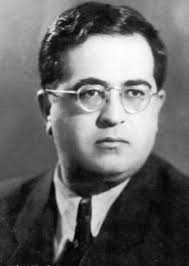
Soltan Ismayil oglu Hajibeyov (1919-1974) — composer, conductor, teacher.
During his years of study at the conservatory, the composer turned to different genres to master the technique of his chosen art. He wrote two preludes and a sonata for piano, as well as the songs "Conversation of Flowers", "Song of Oil" to the words of I. Zamanli and romances "Bird", "Lonely Sail", string quartets, symphonic variations.
In 1945, the Turkmen Opera and Ballet Theater commissioned S. Hajibeyov to write the opera "Kamina and Gazi". The symphonic part of this piece is called "Caravan". One-piece consists of three parts. This is due to his circle of images: the arrival of the caravan, the excitement of natural phenomena, the departure of the caravan. The work is based on "Shur" mugham. In 1946, the Second Symphony appeared. There is a search for new dramatic situations, new ways of expression. The themes of the composer's works for children are different. There is both pioneer life (4 pioneer songs) and descriptions of nature ("New Year", "Spring", etc.).
In 1953, the composer wrote 6 children's songs: "Playful ball", "Lullaby", "Violet", "Spring has come", "Christmas tree", "Pioneer anthem". The children's opera "Alexander and the Shepherd" was written in order of the Baku Pioneer House. It is based on a part of Nizami's "Alexander's Letter".
In 1950, S. Hajibeyov wrote the ballet "Gulshan". This work, dedicated to a modern theme, touches on human relationships, moral qualities, and aesthetic themes.
S. Hajibeyov composed music for many performances. Among them are M. Ibrahimov's "Love", "Peasant Girl", S. Vurgun's "Human", S. Akhundov's "Love and Revenge", S. Rahman's "Aligulu is getting married" and many other works.
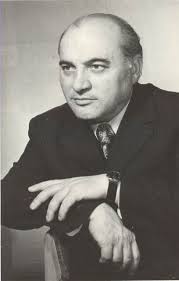
Said Ali oglu Rustamov (1907-1983) — composer, conductor, teacher.
Said Rustamov's graduation from the Teachers' Seminary, and later from the Azerbaijan State Pedagogical Institute, his knowledge of pedagogy, as well as methods of teaching various subjects, and his experience in this field created the basis for his recognition as a master pedagogue in music education.
Although he was one of the main compilers of the textbook "Music Literacy" for music schools and wrote the first textbook "Tar School", in 1931 he was the artistic director and assistant conductor of the first orchestra of folk instruments in our country, later, he became the artistic director and chief conductor of the orchestra, the head of the song and dance ensemble of the club named after Fioletov, during his tenure as head of the Azerbaijan State Song and Dance Ensemble, he became known as a teacher known for his teaching abilities. During the years when Rustamov was repeatedly elected to the Baku City Council, he worked tirelessly to improve the cultural life of workers. As a member of the Board of the Union of Composers of the USSR, S.Rustamov also carried out extensive and purposeful work. His voice came from the most prestigious assemblies of the International Congress. He has repeatedly been the chairman and member of the jury at the World and All-Union festivals for folk instrument performers.
A high assessment was given to the extensive activities of the great artist, ardent patriot Said Ali oglu Rustamov. He was awarded the title of Honored Art Worker in 1938, People's Artist of the Republic of Azerbaijan in 1957, and the USSR State Prize in 1951. He was awarded the Order of the Red Banner of Labor and the Order of Friendship of Peoples three times and several medals.
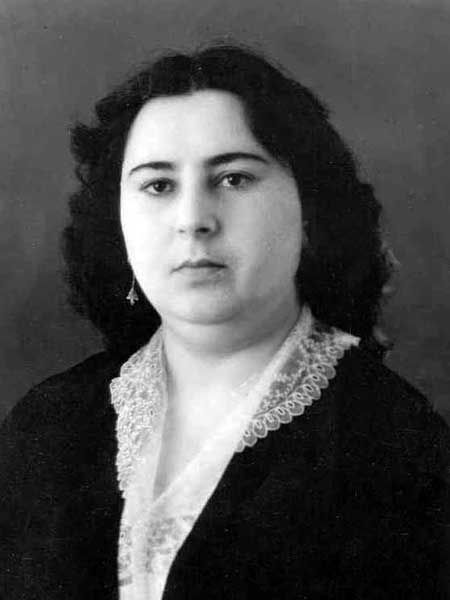
Shafiqa Gulam gizi Akhundova (1924-2013) — the first professional female author of an opera in the East.
In 1943–1944, Shafiga got her primary education at Baku Musical School named after Asaf Zeynally, where he was taught by Uzeyir Hajibeyov. Then, in 1956, she continued her education at Azerbaijan State Conservatoire named after Uzeyir Hajibeyov, where she graduated from the class of B. Zeydman. In 1998, Shafiga Akhundova has conferred the title of People's Artist of Azerbaijan and in 2005 she was awarded the Shohrat Order.
In 1972, Shafiga Akhundova composed her first opera "Galin gayasi" (Bride's rock) and became the first female composer in the East. Ms. Shafiqa also composed several beautiful songs ("Leyla", "Bakhtiyar eller", etc.), the operetta "Ev bizim, sirr bizim"(Our Home, Our Secret), plays for string quartet, "Aydin" for drama theater, "Goodbye India! "," Why do you live?" and, so on. also she is the author of music for children's performances such as "Clown's Tale", "Rabbit's Birthday", etc. His beautiful lyrical songs and romances composed to the poems of Azerbaijani poets are very popular among the people.
The composer not only wrote a song, but also applied it to a complex and difficult genre, and went down in history as the first woman to write an opera in the East. In 1971, she fascinated music lovers with the opera "Bride's Rock".
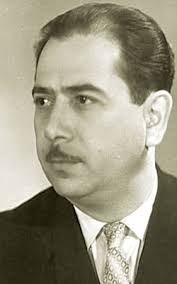
Tofig Alakbar oglu Guliyev (1917-2000) — composer, pianist, conductor, one of the founders of Azerbaijani jazz and pop music.
İn 1934, he became a student of Baku Conservatoire, where he studied in two faculties - fortepiano (in professor I.S.Aysberg's class) and composer (in professor S.G.Strasser's class) and graduated from the Conservatory in 1936. In 1931, Tofig Guliyev wrote a song to Mirza Alakbar Sabir's poem – "About a schoolboy" according to his teacher's advice. At the beginning of 1935, Tofig Guliyev began to work as a conductor at Azerbaijan Drama Theatre. In 1936, mugham recordings "Rast", "Segah", "Zabul", "Dugah" were released by him (jointly with composer Z. Bagirov). At the initiative of Uzeyir Hajibeyov, he was sent to the Moscow State Conservatory to continue his education. Soon a pianist began working in the orchestra led by A.Tfasman.
He returned to Baku in 1939 and in 1941 founded the Red Army ensemble. He wrote various patriotic songs for the ensemble, which is part of the 402nd division. In 1943, the ensemble was divided into two groups. One of them, called Red Naval, was managed by Tofig Guliyev. After the end of the war, Tofig Guliyev began his composer activity at Azerbaijan State Russian Drama Theatre named after Samad Vurgun, Azerbaijan Drama Theater named after Azizbayov, Azerbaijan State Theatre for Young Spectators named after Maxim Gorky. He also started working in the field of cinema in the 1940s.
In 1954, he began to teach at the Azerbaijan State Conservatoire named after. In 1956-1958, several of his songs were included in the "Azerbaijani songs" music volume. In 1958, the composer became the artistic director and then director of the Azerbaijan State Philharmonic Hall. In 1960-1970 he participated in many international conferences, festivals, and art days. In the late 70s of the XX century, he created many children's and youth music competitions, including "Baku Autumn". From 1969 to 1979 he headed the Union of Composers of Azerbaijan. From 1990 to the end of his life he served as chairman of the Union of Composers of Azerbaijan.
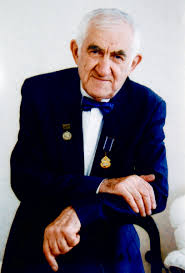
Tofig Ahmadaga oglu Bakikhanov (1930) — composer.
Tofig Bakikhanov received his first musical education at the ten-year music school (now Secondary Music School named after Bulbul) under the Azerbaijan State Conservatory named after U.Hajibeyov (now Baku Music Academy) from the Honored Teacher of the Republic M.I.Simberov on violin. Then he continued his education at the Azerbaijan State Conservatory, where he graduated in two specialties - in 1953, in the class of Professor G.Garayev on the violin. During his student years, T. Bakikhanov was engaged in performing activities and worked as a soloist in the Azerbaijan State Symphony Orchestra, as well as in the symphony orchestra of the Azerbaijan Radio.
T. Bakikhanov's works are dominated by chamber-instrumental and symphonic genres. He wrote three ballets ("Caspian Ballad", "Oriental Poem" and "Good and Evil"), 3 musical comedies with composer Nariman Mammadov ("One of the six girls is a fairy", " Mammadali is going to resort ", " The girl is in a hurry to a date"), 25 concerts for symphony orchestra with tar and various instruments, 20 sonatas, 5 symphonic mughams ("Nava", "Shahnaz", "Rahab", "Humayun", "Dugah"), 8 symphonies, 6 symphonic poems, 26 sonatas in the field of chamber music, works for various ensembles, more than 100 songs and romances.
In 1973, he was awarded the honorary title of Honored Art Worker of the Republic. In 1983 he became a professor. In 1991, he was named People's Artist of the Republic of Azerbaijan. In 1996, he was elected Doctor of Arts of the Azerbaijan National Academy of Arts. In 1994-2000 he was a laureate of the award named after Abbasgulu aga Bakikhanov. He was also awarded the Order of Glory in 2000. At the VII International Dance Festival in Paris in 1969; In 1998, 2000, 2001 he performed at the II, IV, V international music festivals "Bellapais" in the Turkish Republic of Northern Cyprus, in Moscow, Tbilisi, and in recent years in Istanbul, Izmir, Tehran, Bulgaria.
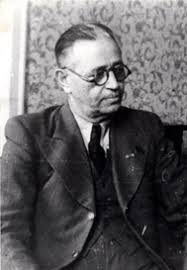
Uzeyir Hajibeyov (1885-1948) — composer, musicologist-scientist, publicist, playwright, pedagogue, and public figure, founder of modern Azerbaijani professional music and national opera.
Uzeyir bey Hajibeyov began his artistic career with journalism. He appeared in "Kaspi", "Hayat", "Irshad", "Taraggi", "Haqiqat", "Iqbal", "Yeni Iqbal" newspapers and "Molla Nasreddin" magazine he published many articles, feuilletons and satirical miniatures on important socio-political and enlightenment issues of the time under the headings "Ordan-burdan", "O yan-bu yan", etc. with secret signatures "U", "Filankes", "Behmankes".
Uzeyir Hajibeyov decided to create a national opera in the Azerbaijani language to arouse people's interest in musical performances. Hajibeyov's opera "Leyli and Majnun" performed on January 12, 1908, in Baku at the theater of Haji Zeynalabdin Tagiyev laid the foundation of opera not only in Azerbaijan but in the whole Muslim East.
The young composer wrote mugham operas "Sheikh Sanan", "Rustam and Sohrab", "Shah Abbas and Khurshidbanu", "Asli and Karam", "Harun and Leyla" one after another. The origin of the first operetta in the East is also connected with the name of Uzeyir bey. The musical comedies "O olmasın, bu olsun"(If Not That One, Then This One), "Arshin mal alan" make him very popular. The culmination of Uzeyir's work is the "Koroglu" opera. In this work, the author could create exhaustive arias and mass choir scenes based on the rules of classical opera.
He collected and recorded more than 300 folk songs, wrote anthems, cantatas, fantasy, songs, and romances, works for chamber and choir. The music of the national anthem of the Azerbaijan Democratic Republic and now independent Azerbaijan belongs to Uzeyir Hajibeyov. The song "Chırpınırdın, Qara Deniz" composed by A.Javad is very popular not only in Azerbaijan but also in Turkey. The romances "Sevgili canan" and "Sensiz" performed by Muslim Magomayev are considered to be some of the most valuable pearls of the Azerbaijani musical treasury.
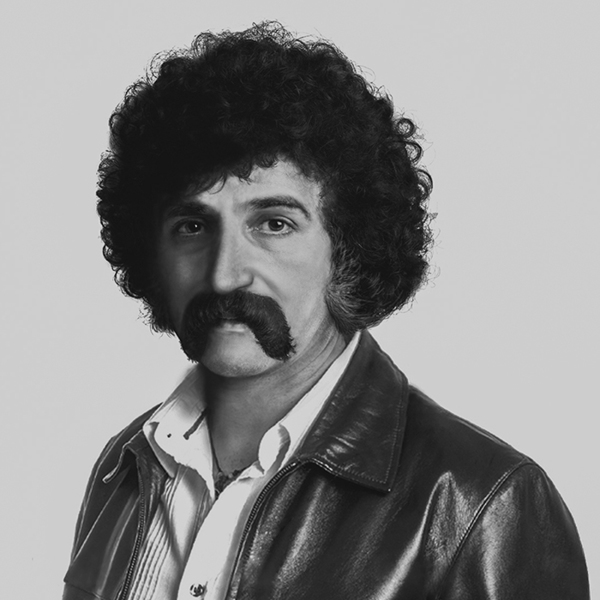
Vagif Aziz oglu Mustafazade (1940-1979) — composer, pianist, founder of the jazz-mugham style.
In 1963, he graduated from Baku State Musical School named after Asaf Zeynally and a year later accepted to the Baku Music Academy. Vagif gives small concerts here, performs in clubs, mainly plays classical jazz, blouses, and dance songs.
Since 1964, he has been the head of the ensemble Orero, the Caucasus jazz trio, the Leyli and Sevil women's vocal-instrumental ensembles, and the Mugham instrumental ensembles. Laureate of international jazz competitions and festivals (Tallinn-66, Tbilisi-78, Monte Carlo). In 1979, a new festival was held in Monaco in unusual conditions. According to the terms of the festival, the author, performer, and country of the work must remain secret. After the festival, we are given a native name out of hundreds of unknown names. Azerbaijan, Vagif Mustafazade. He returns home from the jazz festival with the White Royal award and prepares for the next concert.
He is the author of a concerto for piano and symphony orchestra, symphony "Mugham" (incomplete), several jazz compositions and plays. Vagif Mustafazade is the founder of Azerbaijani jazz music and the founder of a new jazz idea (motto). He created a synthesis of Azerbaijani music, mugham with classical American jazz music. His new motto is called Jazz-Mugham. He is the architect of the Azerbaijan Mugham Jazz Movement. In 1979, the author of the "Mugham" symphony, Vagif Mustafazade, who saw the elements of jazz in the improvisations of mugham, created an original genre and was awarded the honorary title of Honored Artist of the Republic of Azerbaijan.
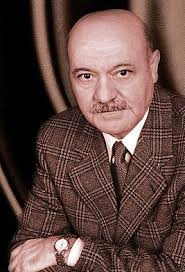
Vasif Zulfugar oglu Adigozalov (1935-2006) — composer.
In 1953 he entered the Azerbaijan State Conservatory named after U.Hajibeyov. He continues his education in the class of Gara Garayev on composition and Simuzar Guliyeva on piano. In 1959 he graduated from the same educational institution in two specialties.
He began his career in 1958 as a music editor at the Radio and Television Committee. Later he was the executive secretary of the Union of Composers of Azerbaijan, editor-in-chief of the State Philharmonic named after M. Magomayev, director of the Baku Music School named after A. Zeynalli. From 1972 he worked as a teacher at the Azerbaijan State Conservatory named after U. Hajibeyov. In 1990, he was elected First Secretary of the Union of Composers of Azerbaijan.
In 1973 he was awarded the title of "Honored Art Worker", in 1988 he was awarded the honorary title of People's Artist of the Republic.
He has been a Professor since 1989 and a State Prize Laureate in 1990
In 1995, he was awarded the Order of Glory. He headed the department of "choir conducting" at the Baku Music Academy.
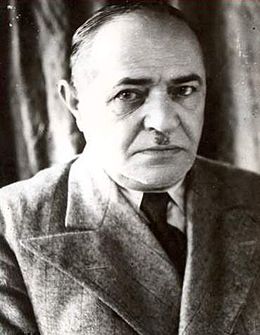
Zulfugar Abdulhuseyn oglu Hajibeyov (1884-1950) — composer, one of the founders of the Azerbaijan State Theater of Musical Comedy.
Zulfugar Hajibeyov is the author of the first Azerbaijani operetta — Young at Fifty Years Old (1910). The operetta is the first example of the comedy genre on the Azerbaijani stage. Both the text and the music are written by Zulfugar Hajibeyov. The first performance of the play took place in April 1911 at the Georgian Noble Theater in Tbilisi (Georgia). Later the operetta was performed in Baku, Nakhchivan, Yerevan, and Shusha. The works of Zulfugar Hajibeyov played an important role in the musical art of Azerbaijan. Folklore was used in the opera "Ashig Garib", which brought a new trend to the work of Azerbaijani composers. In 1917, he also designed special costumes for the staging of an opera with a fantastic plot called "Three Lovers or Malikmammad." However, due to pressure from the Soviet government, the play was not staged.
"Village girl", "Shepherd girl" and "Soldier's song", which became popular in the first quarter of the XX century, are the first songs of the composer. The role of Zulfugar Hajibeyov in the formation of Azerbaijani classical music is also great.
In 1932, he composed a symphonic play entitled "Dance of Slave Women." In addition, Zulfugar Hajibeyov created several cantatas. In 1935, together with his son Niyazi, he wrote music for the first Azerbaijani sound film based on the play of the same name by Jafar Jabbarli — "Almaz". Zulfugar Hajibeyov's last work was a cantata written in 1950 with Zakir Bagirov.



